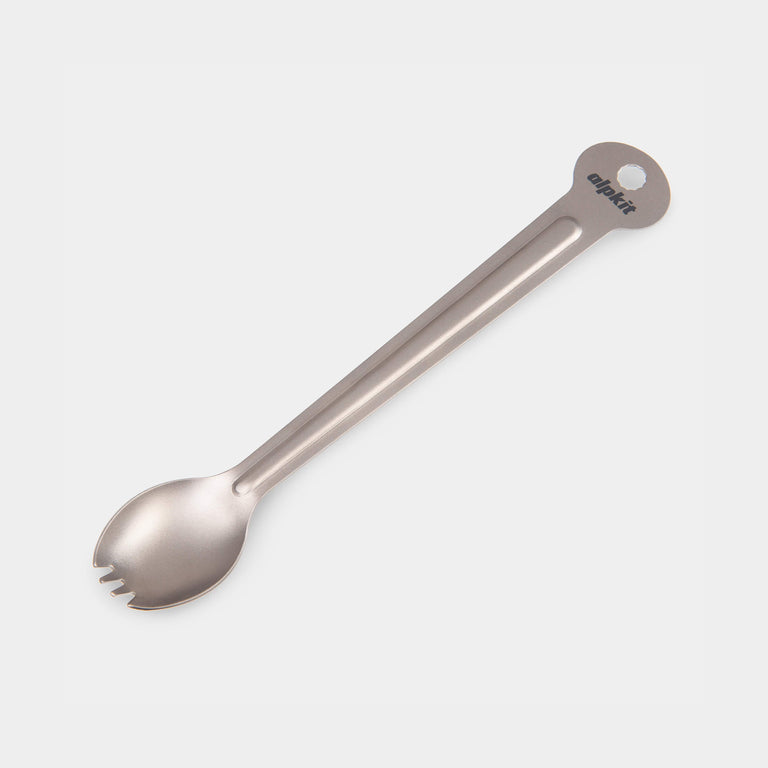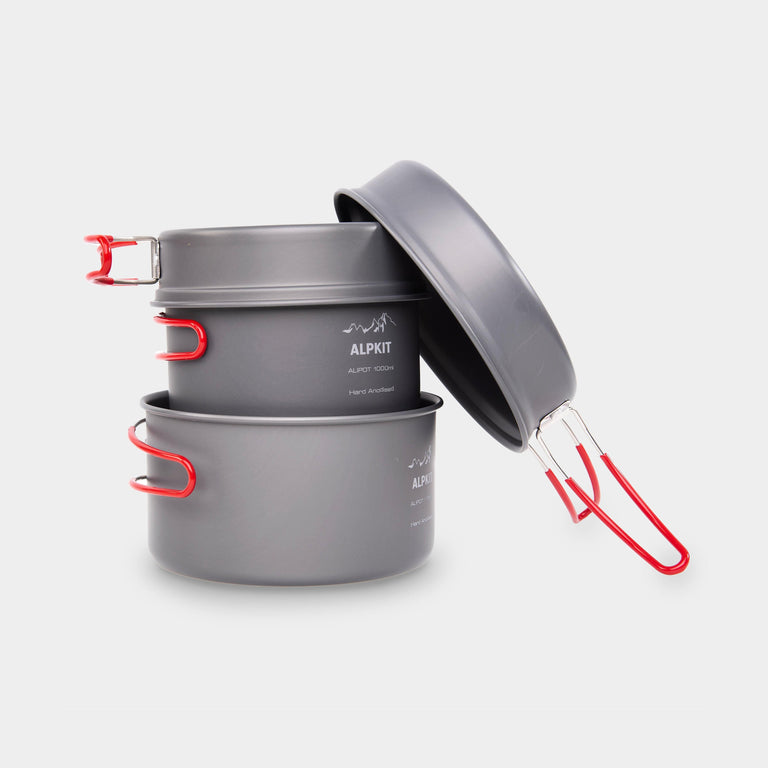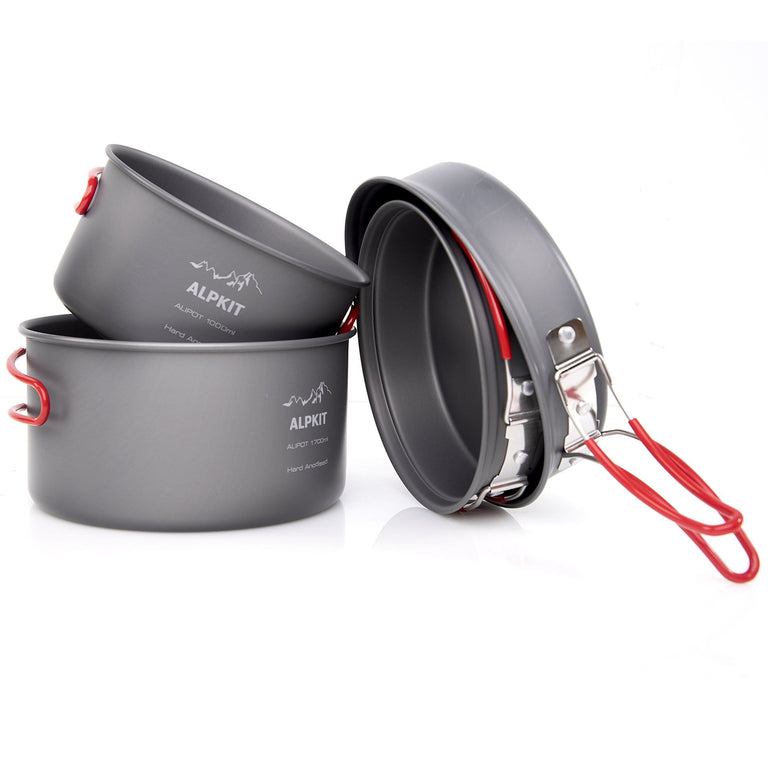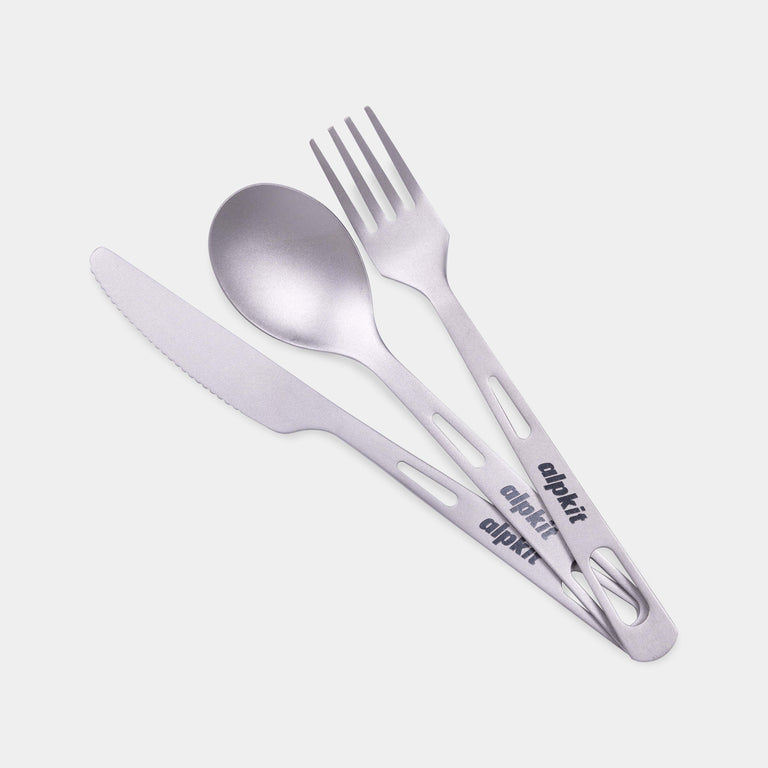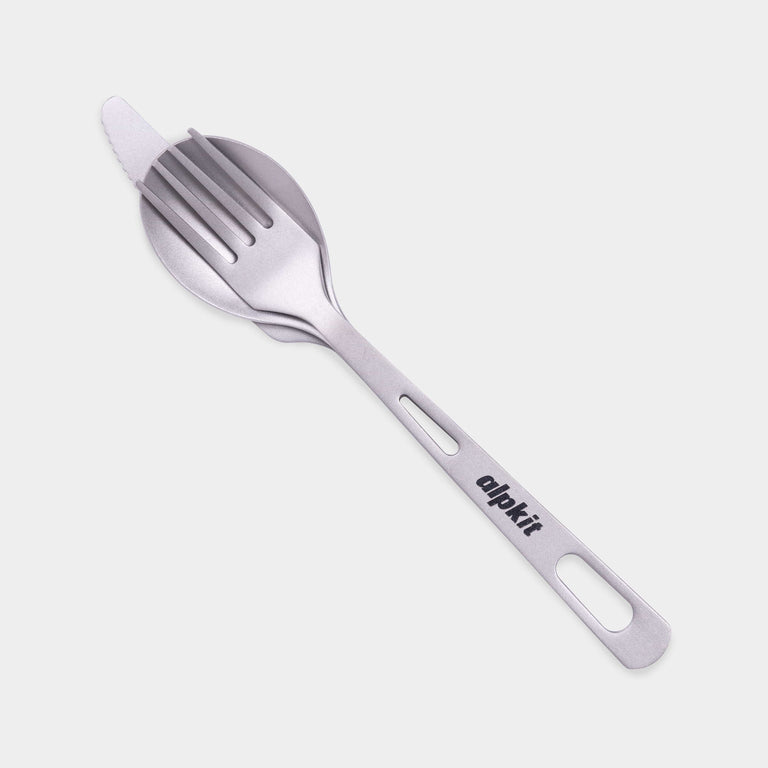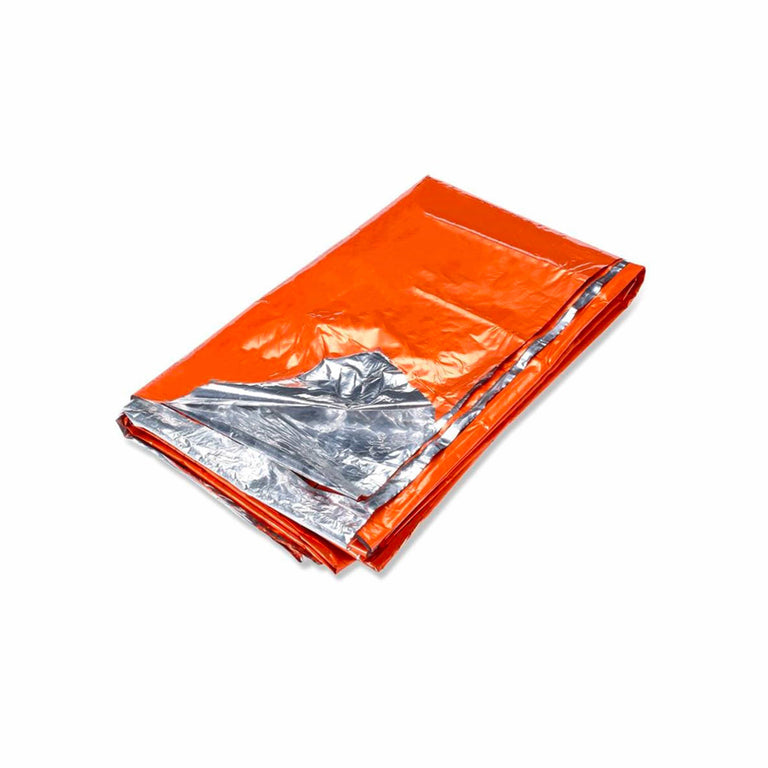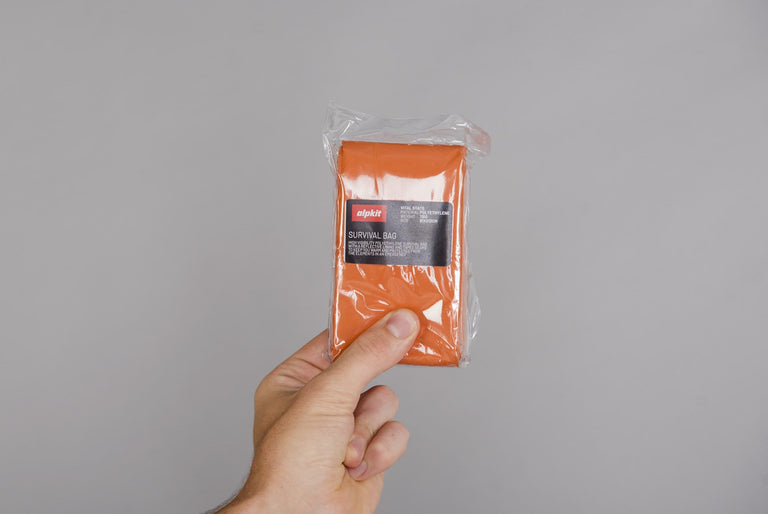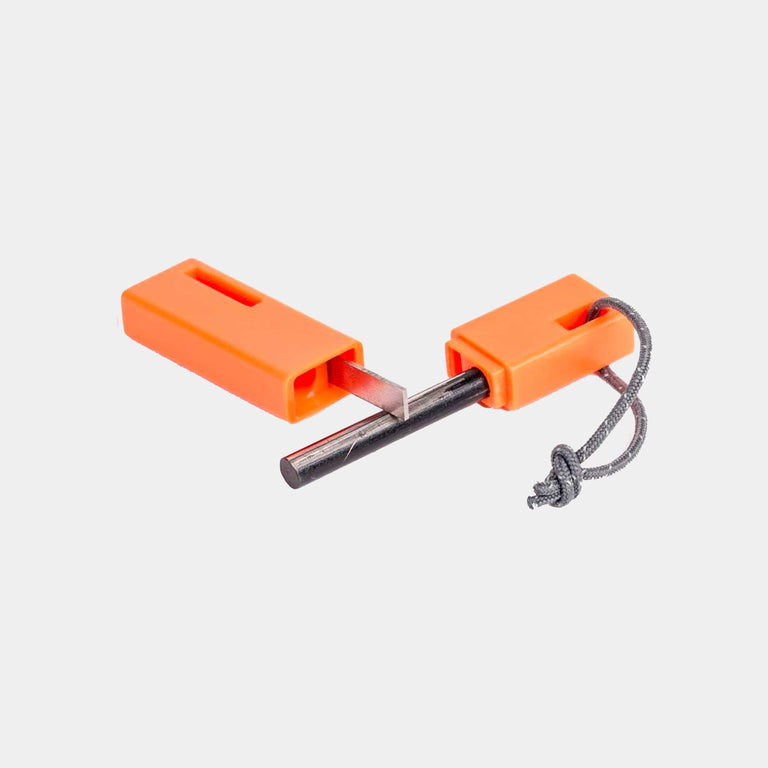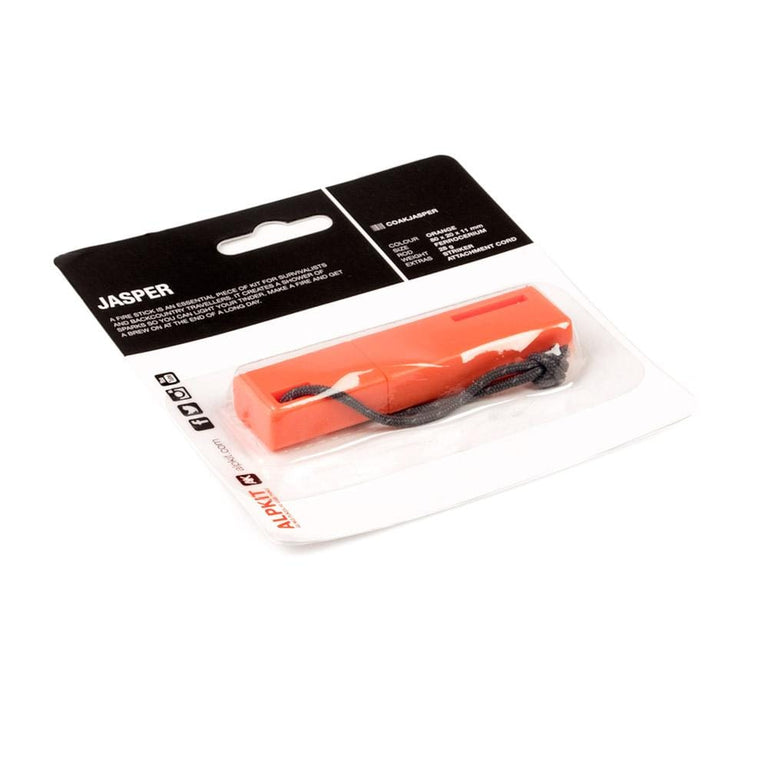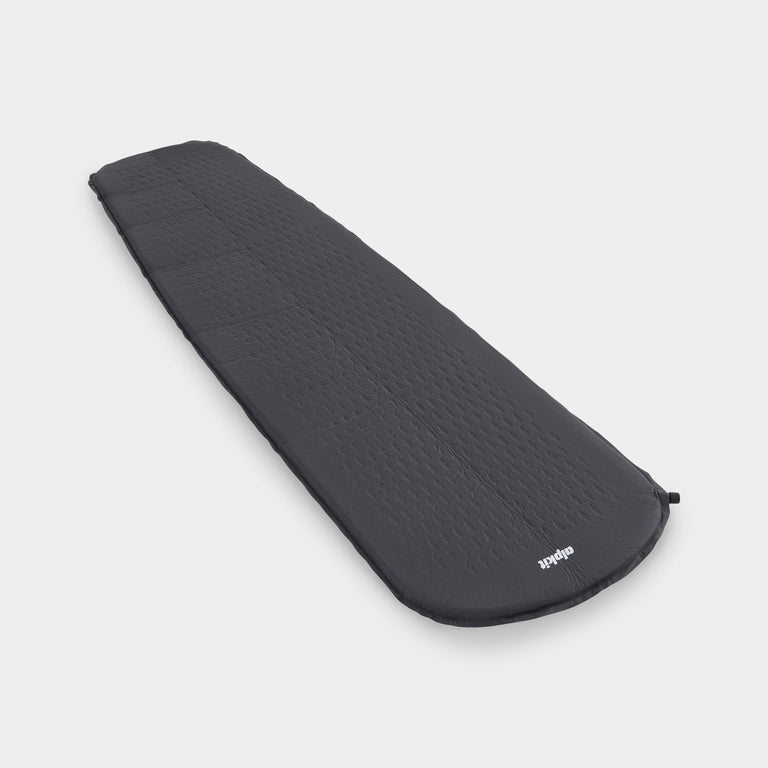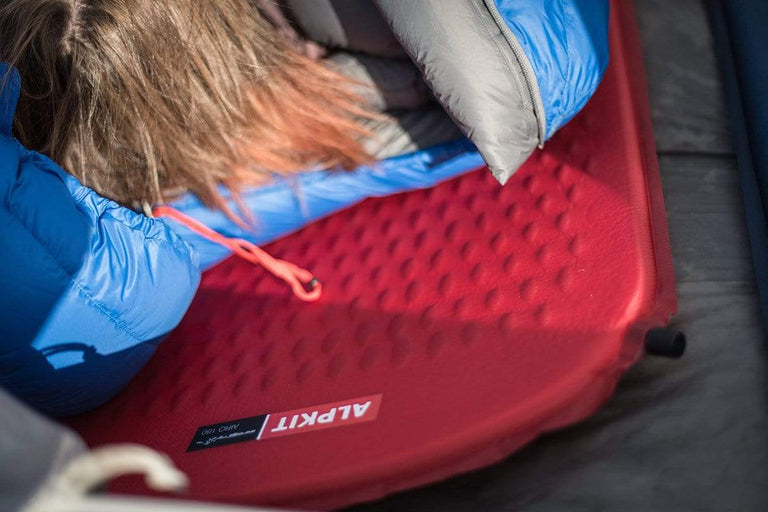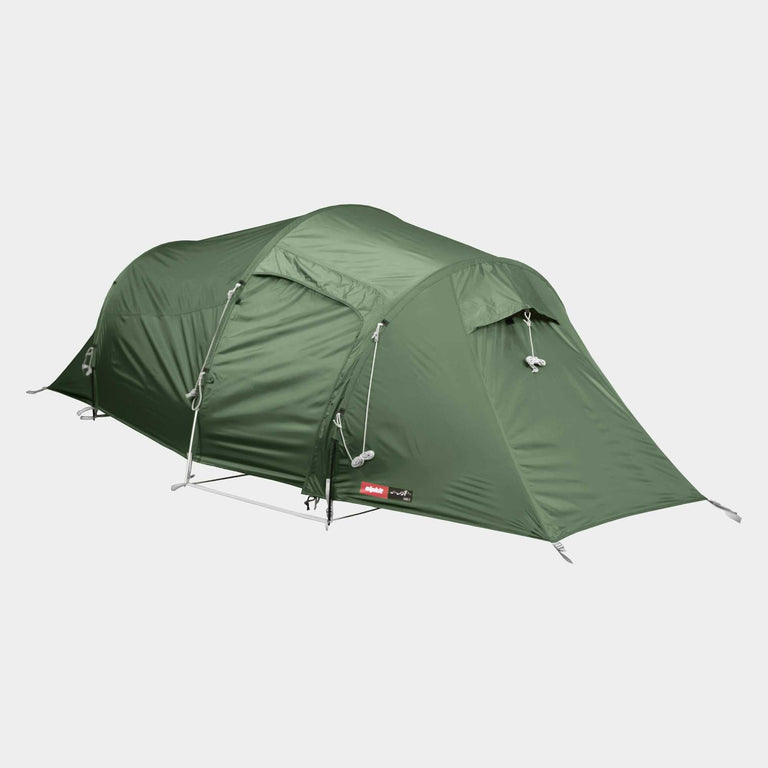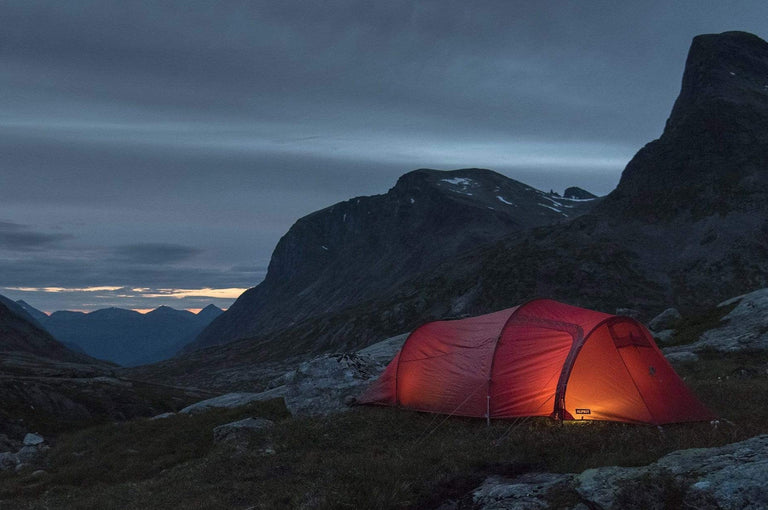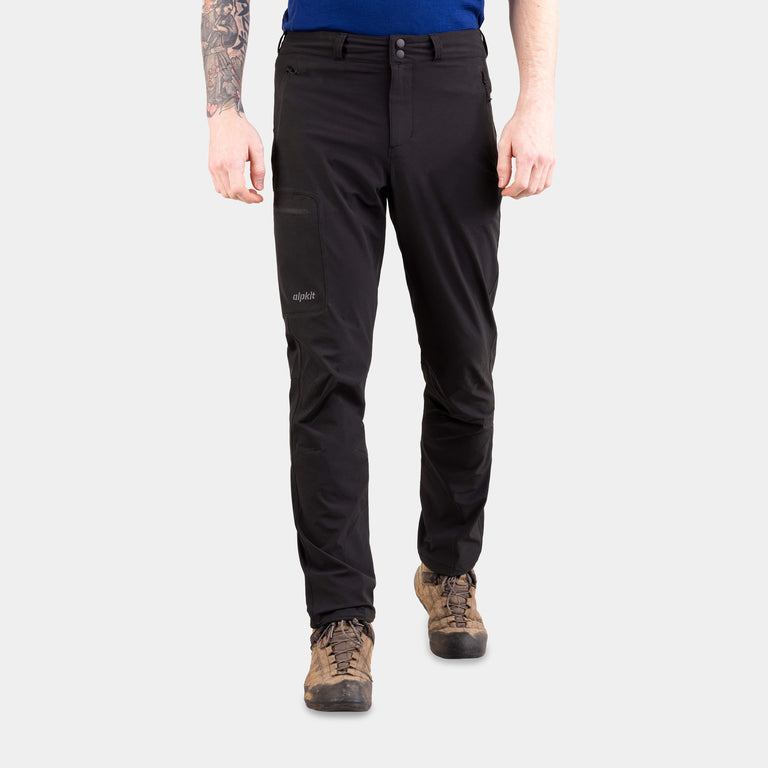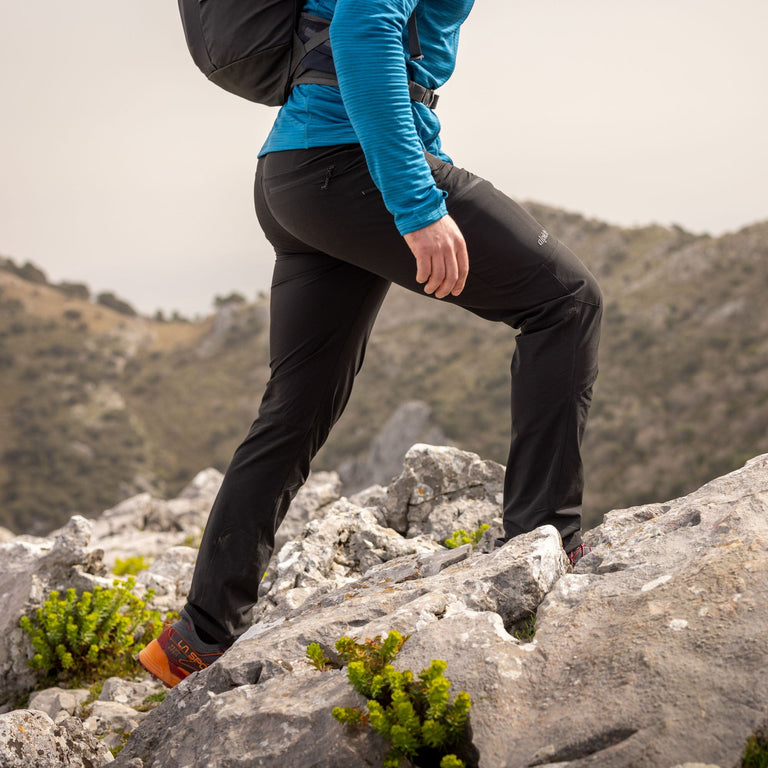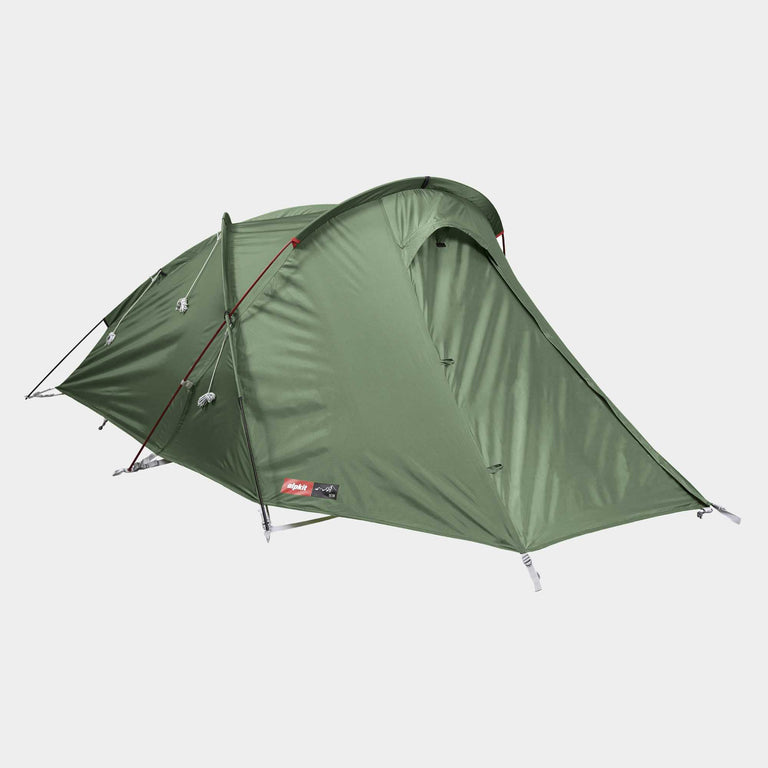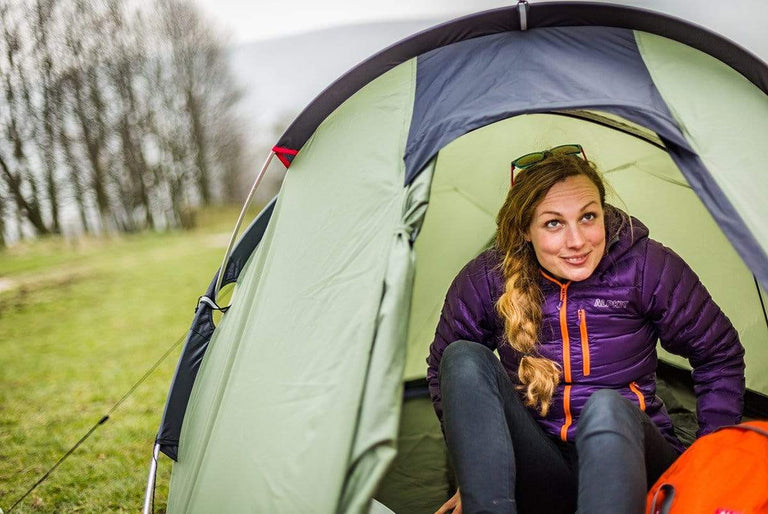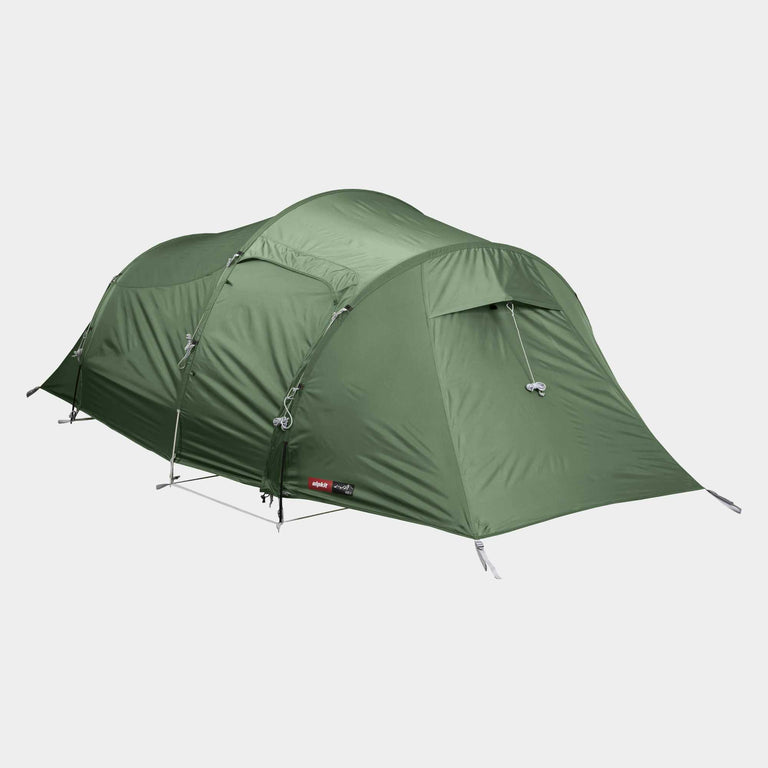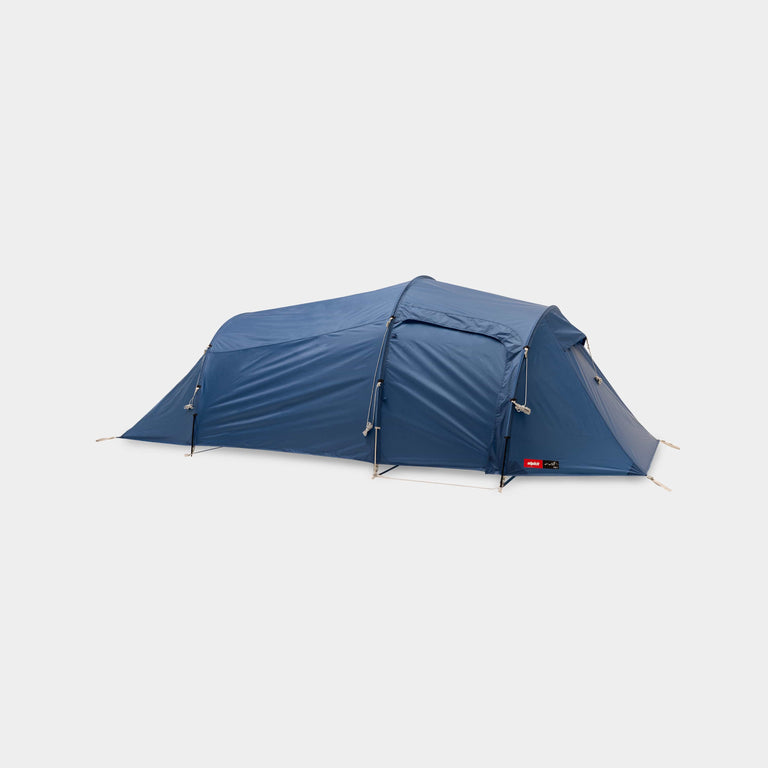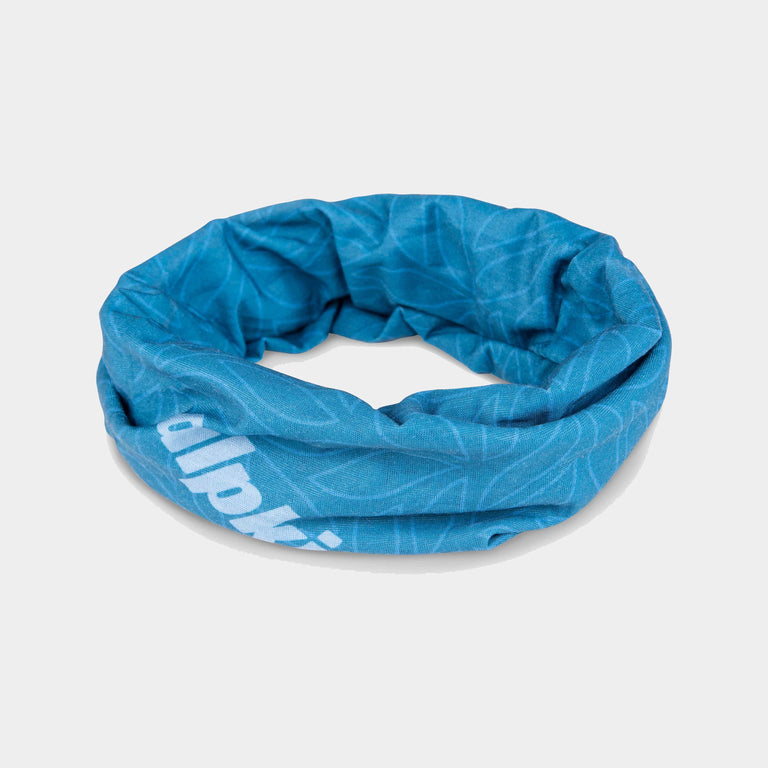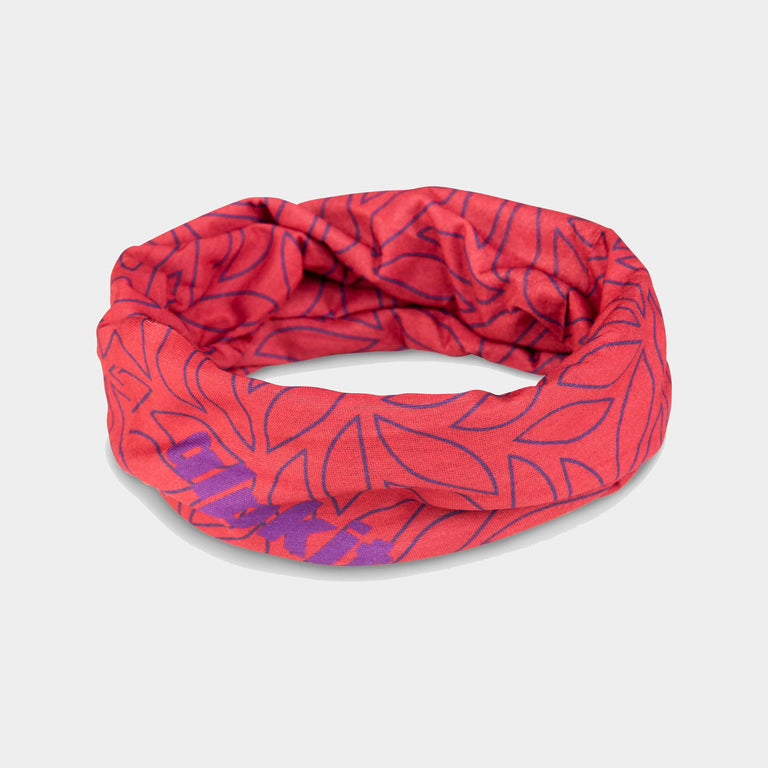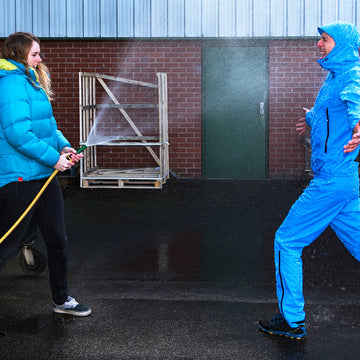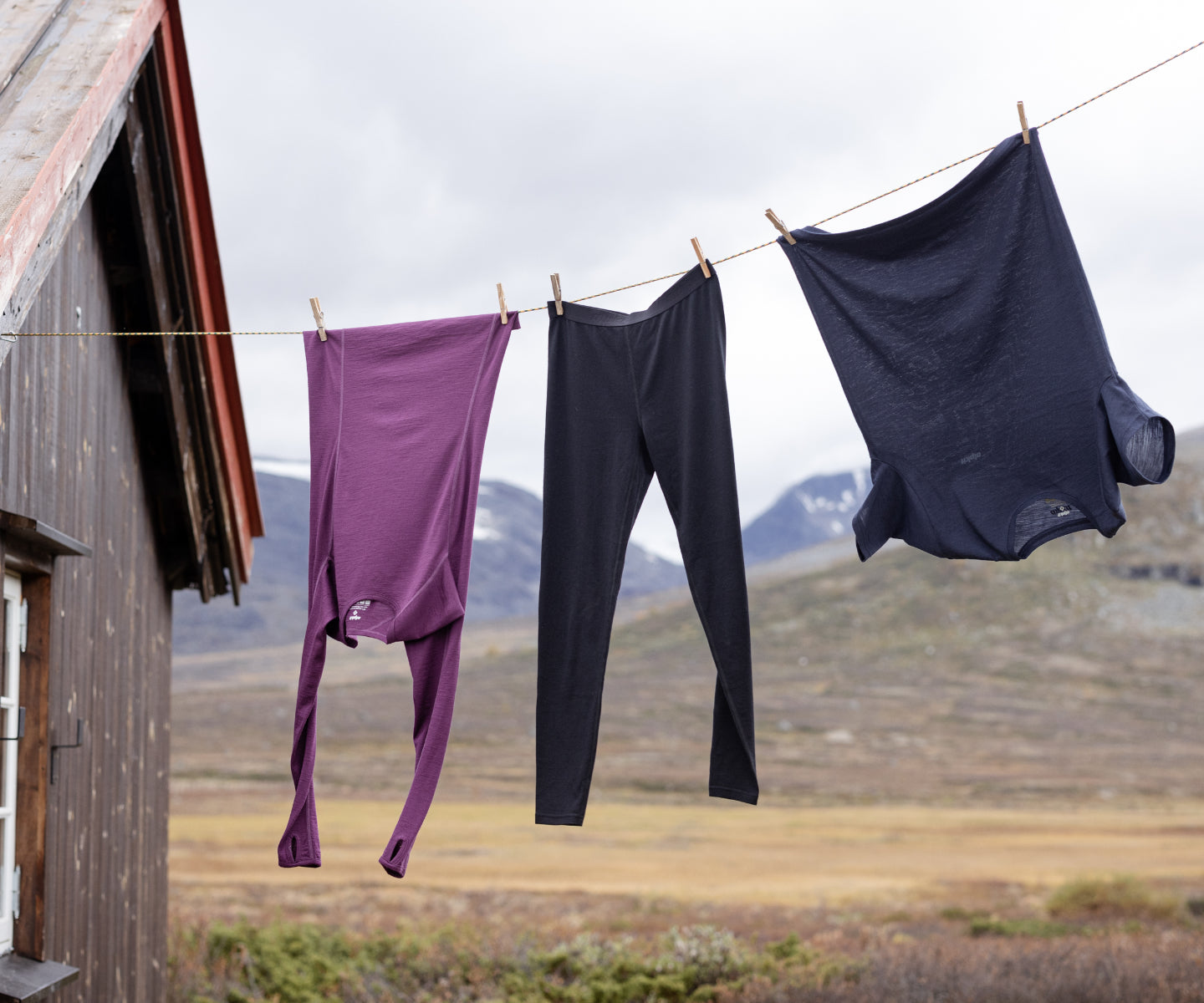
Follow our DofE clothing guide to choose layers that perform well and reduce pack weight. Get equipped for success on your expedition.
By embracing the art of layering, you can save weight and ensure you will remember your expedition for its awe-inspiring views and experiences rather than discomfort and inappropriate clothing.
This article is the first recipe in 6 weight saving recipes to shave weight off your DofE expedition kit list, a series of articles to help you save weight on your expedition kit without compromising comfort or utility, helping you to make more sustainable choices and invest in kit that will last a lifetime.
When you're on an expedition, dealing with changing weather and varying levels of activity can be tricky. You don't want to end up too cold or too hot. It's important to have the right kind of clothes to keep your body temperature just right, handle sweat well, and protect you from the weather, especially when you're on the move.
You will not be wearing all of your layers at once, so your clothes should compress down to fit in a backpack. By combining layers that are dual-purpose, waterproof, breathable, light, and dry fast, you can adjust to different weather conditions easily, save weight and stay comfortable, even if you get caught in sudden spring rains.
You can read more about the concepts of the layering system here. For now, let's jump straight into some solutions.
How can you save weight on your DofE expedition?
The DofE publish a recommended expedition kit list which is a great place to start if you are kitting yourself out for the first time. Using this we have compiled a list of alternatives that will help you reduce the weight of your pack. Our recommendations are a guide - you should always check with your Expedition Leader that the kit you choose is suitable for your particular expedition.
| Our choice | DofE recommended kit | |
|---|---|---|
| Cloudburst waterproof trousers | Craghoppers Ascent Over Trousers | |
| Waterproofness | 10000 mm | 5000 mm |
| Breathability | 10000 g/m2/24hrs | 15000 g/m2/24hrs |
| Weight | 215 g (Save 60g) | 275 g |
| Sustainabiity | 100% recycled, 100% PFC free | 47% recycled |
| Argonaut waterproof jacket | Craghoppers Orion | |
| Waterproofness | 10000 mm | 8000 mm |
| Breathability | 10000 g/m2/24hrs | 15000 g/m2/24hrs |
| Weight | 385 g (Save 95g) | 480 g |
| Sustainabiity | 100% recycled, 100% PFC free | 47% recycled |
| Teleki hiking trousers | Craghoppers Verve trousers | |
| Weight | 250 g (Save 65g) | 315 g |
| Construction | 96% Nylon, 4% Spandex | 65% polyester, 35% cotton. Part made from recycling plastic bottles |
| Mello tights | Craghopper Velocity tights | |
| Size range | 6 to 20 | 6 to 20 |
| Weight | 171 g (Save 55g) | 225 g |
| Construction | 76% nylon, 24% elastane | 92% polyester, 8% elastane. Part made from recycling plastic bottles |
| Liskam Merino Hiking Socks | Bridgedale Midweight Merino Performance Boot | |
| Fit | Crew | Boot/Crew |
| Moisture management | Coolmax / Thermolite | FusionTech |
| Construction | 60% blended merino, 38% polyamide, 2% elastane | 26% New Wool , 18% Merino Wool , 38% Nylon / polyamide , 17% Endurofil(TM)/ polypropylene , 1% LYCRA(R) / elastane |
Your takeaway guide to expedition clothing
Don't waste your time going around in circles, focus on what matters and put what you learn into practice.
The fundamentals of your expedition clothing
- Base layer (moisture-wicking material)
- Insulating layer (fleece or synthetic jacket)
- Outer layer (waterproof and windproof jacket)
- Quick-drying trousers or shorts
- Lightweight hiking boots
- Moisture-wicking socks
- Hats and gloves
How to prepare your clothing for your expedition
- Ensure your outer layers are sized to go over the top of your inner layers.
- Play around with layers to create the most flexibility.
- Garments with multiple uses will save you weight overall.
- Put your outer layers through a tech wash to improve water resistance and breathability.
Try this in the field
- Start with a moisture-wicking base layer to keep sweat away from your skin.
- Add an insulating layer for warmth.
- Top with an outer layer to protect from wind and rain.
- Adjust layers as needed for changes in temperature, rain, wind chill and activity level.
The next step
As you progress through your Bronze, Silver and Gold Awards you may encounter colder, wetter, drier or more humid environments. Consider varying your fabric weights, and explore natural fibre alternatives such as merino wool as your experience and budget allow.
Our next guide covers which tent, sleeping bag and sleeping mat you will need to save an additional 1kg helping you to pack light and sleep soundly on your wild camp.
DofE Expedition Series
This article is part of our complete guide to lightweight DofE expedition kit:
- DofE Expedition Equipment That Works - Overview and 2kg weight saving strategy
- Is Your DofE Expedition Rucksack Too Heavy? - Save 600g on your pack
- Expedition Food: More Calories for Less Weight - Lightweight nutrition that works
- Which Headtorch for Your DofE Expedition - Essential lighting solutions

